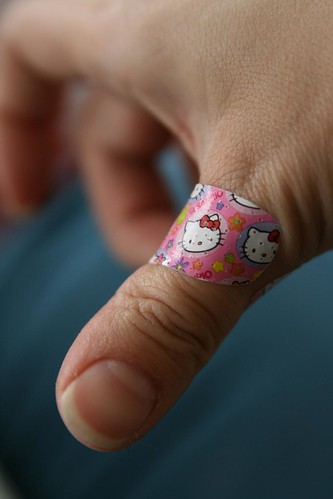 As kids, our parents told us not to play in the mud.
As kids, our parents told us not to play in the mud.
But as it turns out, rubbing mud — and clay — all over your skin has been found to be very beneficial. Just look at the list of procedures at nearly any spa or the ingredients list on many masks and you’ll find different kinds of clay with different benefits. Clay is defined as a material made out of fine mineral particles that’s flexible when wet and hardens when fired (Merriam Webster).
[Read More: The Kitty Litter Face Mask: Does It Work?]
There’s a type of clay for just about every skin type out there based on each clay’s particular properties. Bentonite clay is most beneficial to people with oily skin and clogged pores and can be found in many facemasks and similar treatments.
A Bit About Bentonite Clay
Bentonite is a potassium-containing type of clay that comes from the smectite family and is a hydrous aluminum silicate (FDA). It comes from both fire and water in a sense — formed both in the ocean and in volcanoes (Skin Deep).
It’s often used for its water absorbing qualities and can be used as a thickening agent (Academic Press Dictionary of Science and Technology). It’s also used to clarify water and juices, as a water softener, and sometimes as an absorbent clay (called Fuller’s Earth) (Encyclopedia Britannica Academic Edition).
Can Bentonite Heal Wounds?

Clays have been used as a kind of bandage for wounds for a long time in human history. But that doesn’t necessarily mean that Bentonite works to help expedite wound healing, so what have studies found? A study on rat skin found that over the course of ten days, there was little difference in inflammation between a group treated with Bentonite and a control group (Tehran University of Medical Science). However, they did find the wound healed faster.
The study also explained that Bentonite’s properties of hydration and excellent absorption of toxic materials could make it a candid for other uses. For example, military studies have found that it could be a beneficial ingredient in treatments in chemical warfare. Its absorptive properties can also be used to help in treating allergies. Overall, there’s a lot of promise to Bentonite, but more research still to be done.
Bentonite in Skin Care

Bentonite’s excellent absorptive qualities make it a prime candidate for inclusion in facemasks meant to reduce impurities. In a study on people with acne vulgaris, where subjects are found to have roughly three times more sebum produced than normal, researchers use bentonite clay to absorb the extra oil — demonstrating Bentonite’s ability to soak up excess oils (Dermatology).
But these clays don’t just absorb oils; they also help to pull impurities out of the skin (Life Science Weekly). As aforementioned, the clay has been tested for it’s potential in treating chemical warfare, so it’s evident that their capacity for soaking up all toxic materials is quite large.
[Read More: What Are the Best Facial Masques of 2012?]
In another study a cream containing Quaternium-18-Bentonite was found to significantly reduce dermatitis of the hand in 37 subjects (Journal of Cutaneous Medicine and Surgery). It was also found to stop or reduce allergy to poison ivy in 211 subjects in another study (Journal of the American Academy of Dermatology).
Bottom Line
Bentonite clay is best for people with oily skin or clogged pores. It’s known for it’s high absorbency and ability to soak up toxins, which is why it’s been studied for treating everything from poison ivy rashes to wounds from chemical warfare. It has healing properties in some regards and researchers are still working to understand precisely how well it works.
SkinCeuticals Clarifying Clay Masque ($35, amazon.com) — Along with Kaolin clay and aloe, this mask works to purify and soothe skin.
Living Clay Cleansing Clay Mask 4 Oz – All Natural Calcium Bentonite Clay – Ultra Pure – 4 Oz ($24.99, amazon.com)





